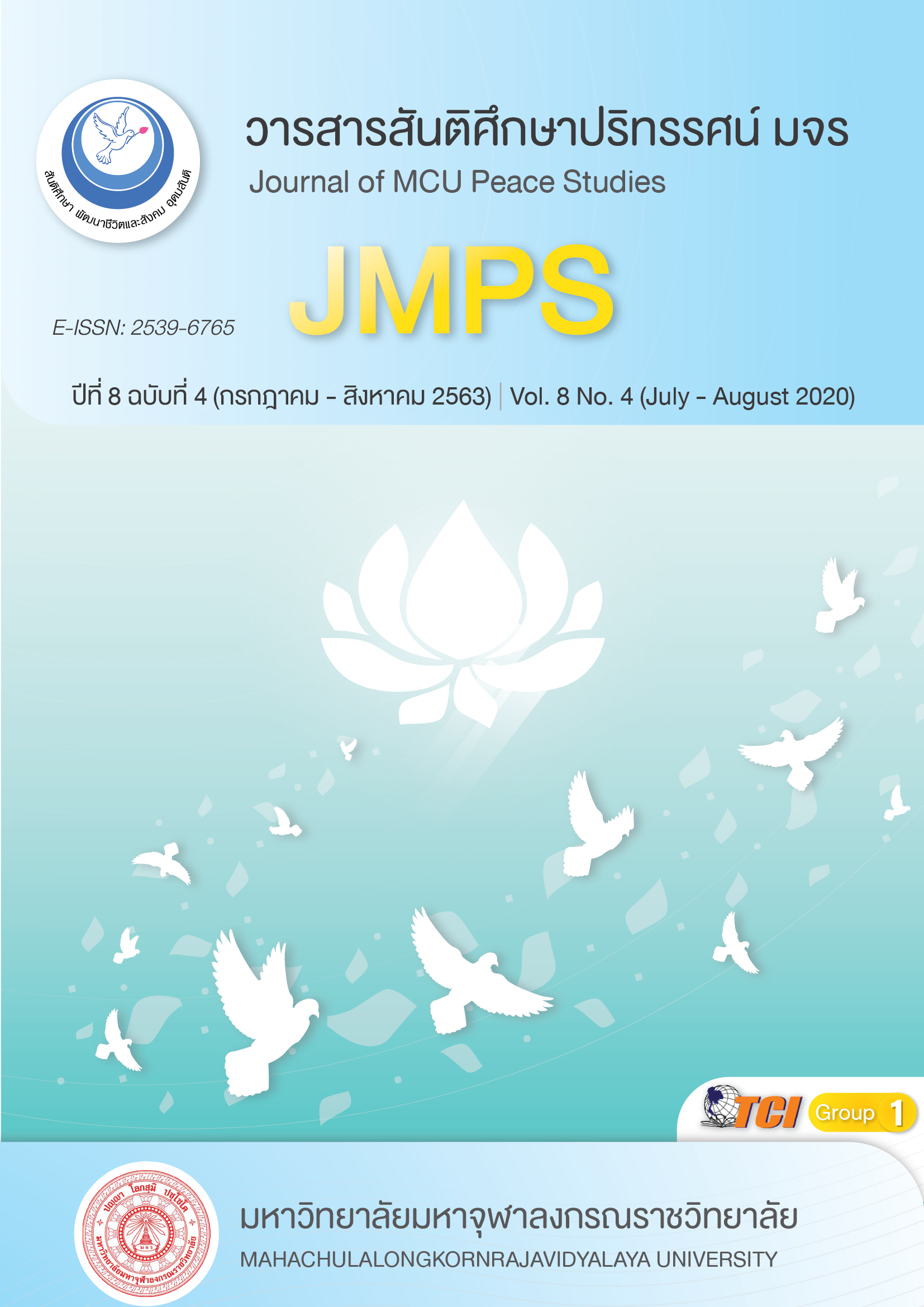The Desirable Social State in Accordance with Theravada Buddhist
Main Article Content
Abstract
This research article Is a document research the objective is to study and analyze the desirable social conditions in accordance with Theravada Buddhism. The results of the research showed that the problem of social status arises from the social members being dominated by the rules of power that come from the social rulers. Rules Regulations For members of society to follow until causing the members of the society to be inferior to the society and become exploited and their rights and freedoms are confined to society. Later, members of society demanded rights and freedoms from society in order for the society to become "Desirable society", therefore, to make society a good society must give priority to the rights and freedom of members in society. By applying the doctrine of Theravada Buddhism to society today, focusing on the principle polity that is to say not extreme to either side or to the left or right. For this reason, it is the heart that will allow members of society and parents to live together happily as they wish.
Article Details
Views and opinions expressed in the articles published by The Journal of MCU Peace Studies, are of responsibility by such authors but not the editors and do not necessarily reflect those of the editors.
References
Arunvej, T. (2008). Guidelines for the development of the elderly in accordance with the strategy of social development. Bangkok: Office of the National Economic and Social Development Board.
Mahachulalongkornrajavidyalaya University. (1996). Thai Tipitakas. Bangkok: MCU Press. Ngamchitcharoen, W. (2009). Theravada Buddhism. Bangkok: Four-One Printing.
Phra Srikampeerayan. (2013). Buddhist Philosophy. Bangkok: MCU Press.
Phra Ratchaworamuni. (1984). Buddhism and Modern Thai society. Bangkok: Komol Kiemthong Foundation.
Inthasara, W. (2001). Ethics: Science of virtue and art of decision making. Bangkok: Bannakij.
Thepsithar, S. (1991). Coordination with social welfare and social welfare between government and private. Bangkok: Somchai Printing.
Locke, J. (1969). Two Treatise of Government. Edited with An Introduction by Thomas I Cook. New York: Hafner Publishing Company.
Rousseau, J. (1953). Political Writings.Translated and Edited by Frederick Watkins. Edinburgh: Thomas Nelson and sons.
Hobbs,T. (1928). Leviathan. Edited with An Introduction by Michael OakesholtBasil. Blackwell: Oxford.
More,T. (1964). More’s Utopia and Its Critics. Edited by Ligeia Gallagher. Chicago: Scott Forces man and Company.
Choudhary, R. (1971). Kautily’s Political Ideas and institution. India: Chaukhamba Sanskrit Series Offices.


